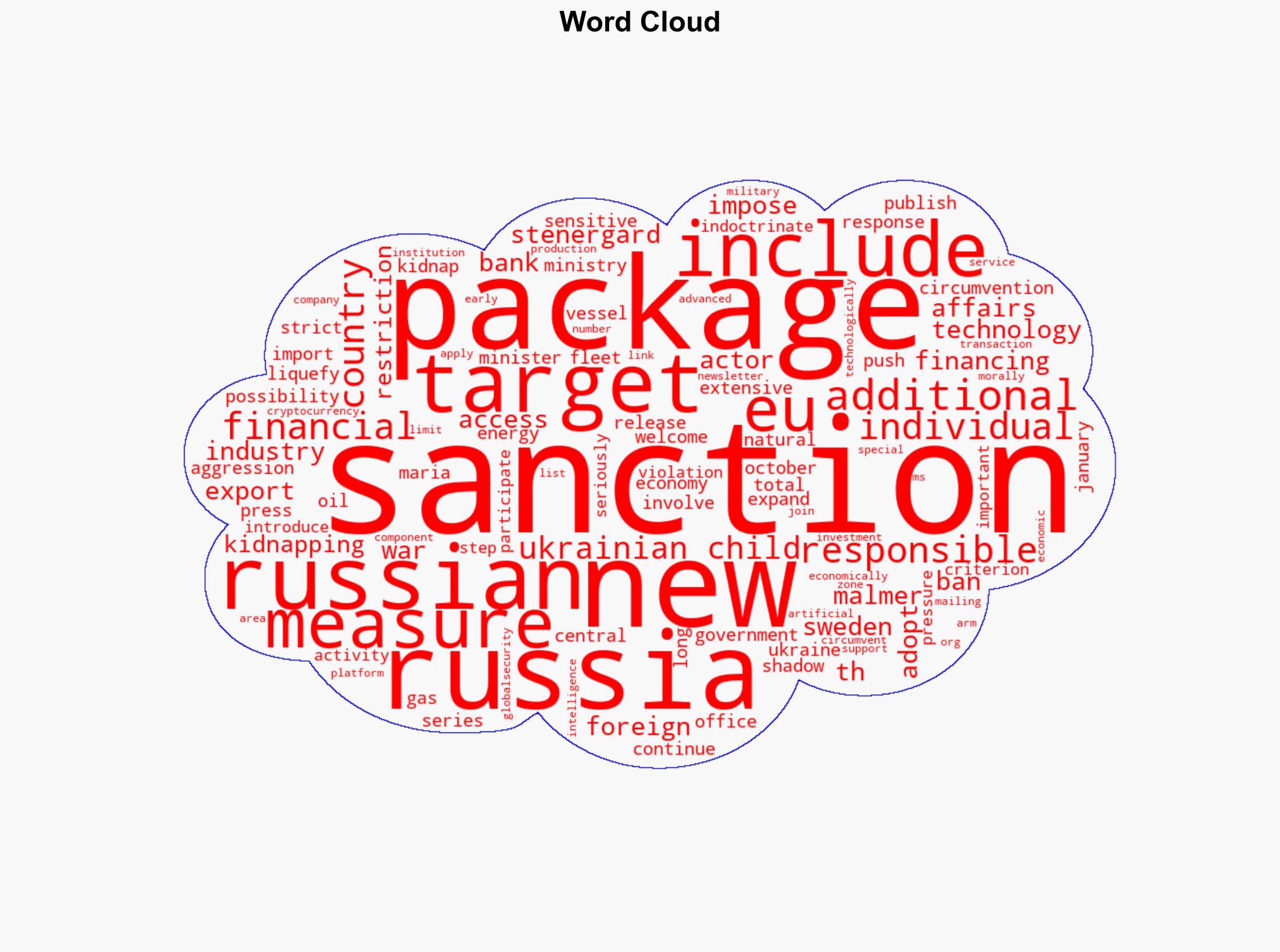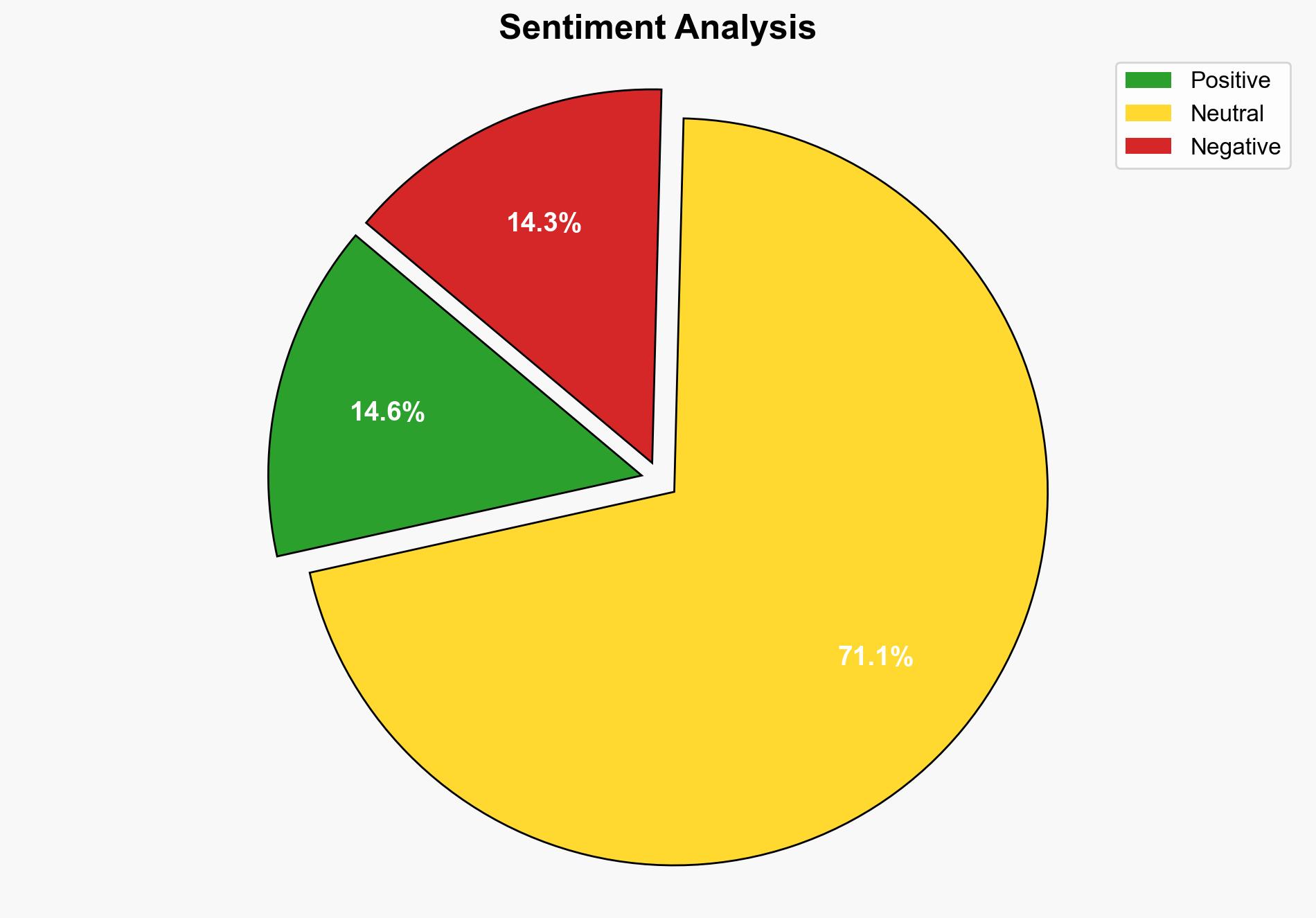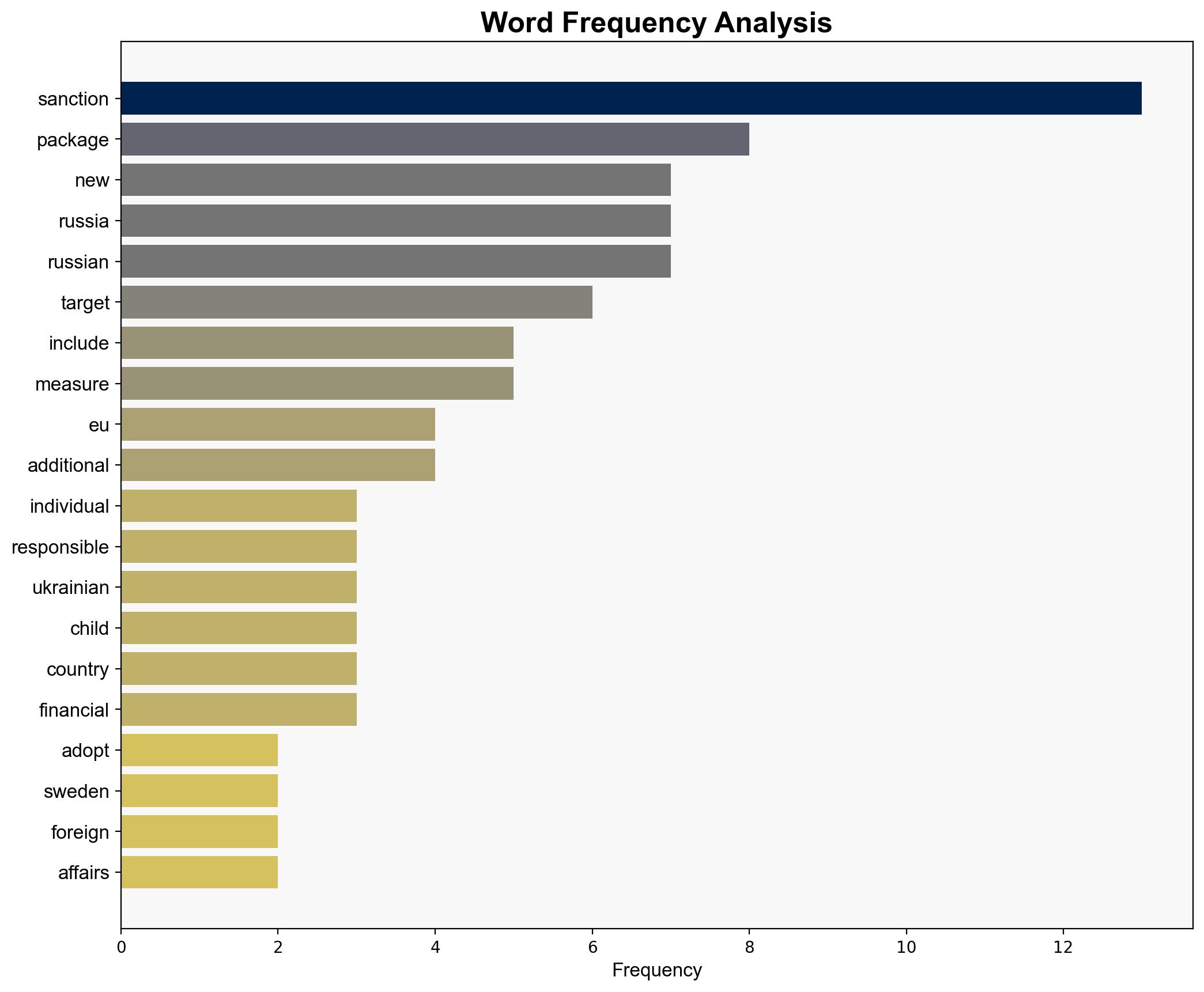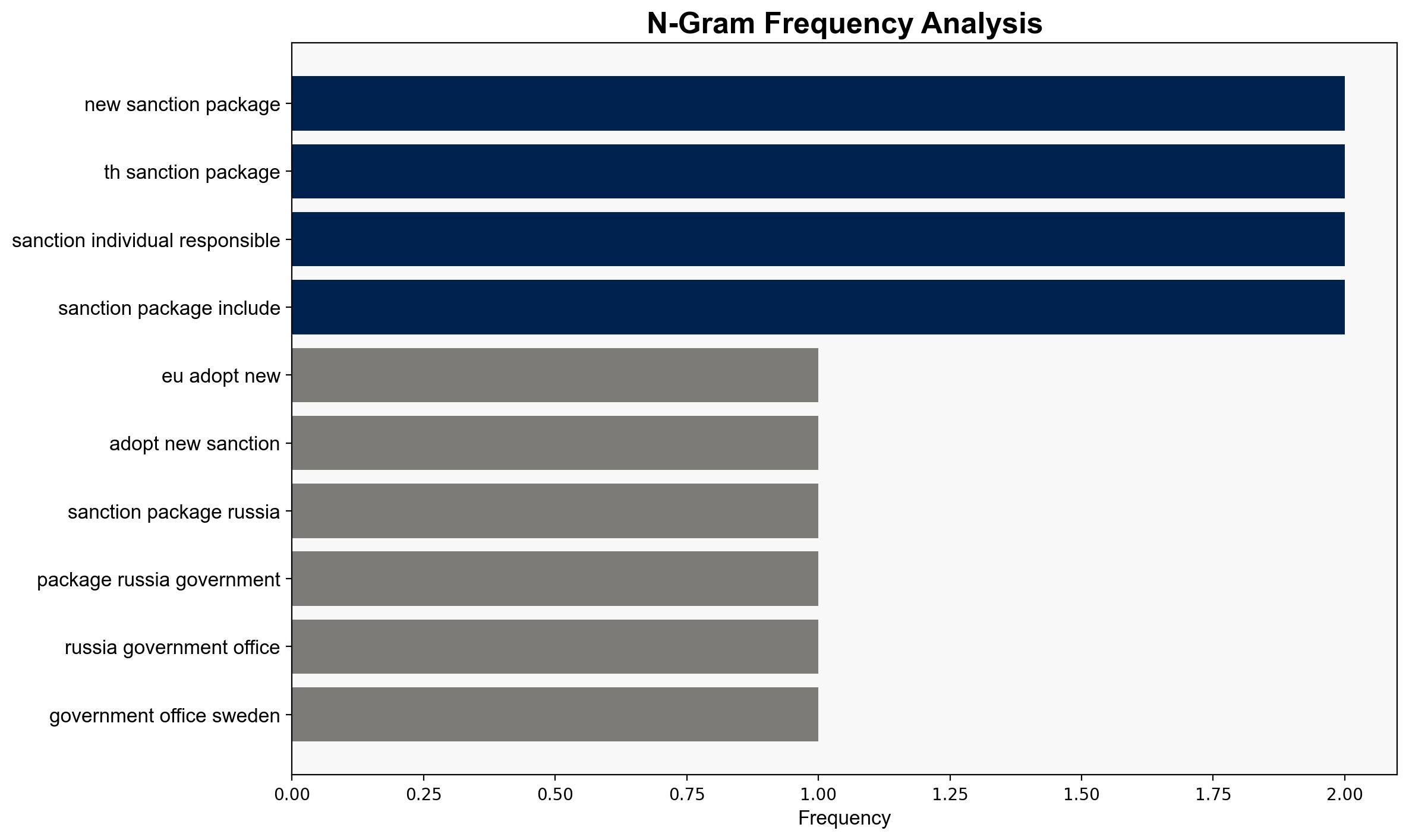EU adopts new sanctions package against Russia – Globalsecurity.org
Published on: 2025-10-24
Intelligence Report: EU adopts new sanctions package against Russia – Globalsecurity.org
1. BLUF (Bottom Line Up Front)
The European Union’s adoption of a new sanctions package against Russia aims to intensify economic and technological pressure in response to Russia’s continued aggression in Ukraine. The most supported hypothesis suggests that these sanctions will further strain Russia’s economy and limit its military capabilities. Confidence level: Moderate. Recommended action: Monitor Russia’s economic indicators and military activities for signs of adaptation or circumvention.
2. Competing Hypotheses
Hypothesis 1: The new EU sanctions will significantly weaken Russia’s economic and military capabilities, forcing a strategic recalibration in its approach to Ukraine.
Hypothesis 2: Russia will effectively circumvent the new sanctions through alternative economic partnerships and technological adaptations, maintaining its current trajectory in Ukraine.
Using the Analysis of Competing Hypotheses (ACH) 2.0, Hypothesis 1 is better supported due to the comprehensive nature of the sanctions targeting critical sectors like finance, energy, and technology. However, historical precedent of Russia’s resilience and adaptability lends some credence to Hypothesis 2.
3. Key Assumptions and Red Flags
Assumptions include the EU’s ability to enforce sanctions effectively and Russia’s limited capacity to find alternative economic partners. A red flag is the potential underestimation of Russia’s shadow fleet capabilities and its ability to leverage cryptocurrency platforms to bypass financial restrictions. Inconsistent data may exist regarding the actual impact on Russia’s military supply chain.
4. Implications and Strategic Risks
The sanctions could lead to increased economic hardship within Russia, potentially destabilizing its internal political environment. There is a risk of Russia escalating its cyber operations against EU states as retaliation. Geopolitically, Russia may deepen ties with non-EU countries, creating new alliances that could shift regional power dynamics. The psychological impact on Russian leadership could either lead to more aggressive posturing or a strategic retreat.
5. Recommendations and Outlook
- Enhance monitoring of Russia’s economic indicators and military logistics to assess the sanctions’ effectiveness.
- Strengthen cybersecurity measures across EU member states to mitigate potential retaliatory cyberattacks.
- Engage in diplomatic efforts with potential Russian allies to limit their support.
- Scenario Projections:
- Best Case: Sanctions lead to a de-escalation in Ukraine and a negotiated settlement.
- Worst Case: Russia circumvents sanctions, leading to prolonged conflict and increased global instability.
- Most Likely: Sanctions partially weaken Russia, causing a slow but noticeable impact on its military operations.
6. Key Individuals and Entities
Maria Malmer Stenergard, Swedish Minister for Foreign Affairs, is a key proponent of the sanctions. The Russian government and its affiliated financial institutions and energy sectors are primary targets.
7. Thematic Tags
national security threats, cybersecurity, regional focus, economic sanctions, geopolitical strategy




